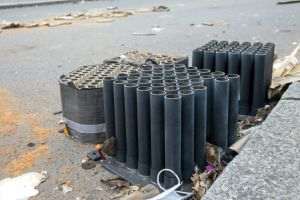The quality of alternative water sources on the territory of the UNESCO International Geopark Şara Haţegului and to what extent water consumption has an impact on climate change and the quality of life will be analyzed within a participatory science project (citizen science). It is the first educational project carried out in Haţegului Country that brings together the University of Bucharest and the Babeş-Bolyai University of Cluj-Napoca, six schools from the EduGeoparc Network, including three UNESCO schools, the group of Volunteers for Geoparc and two local NGOs. The project is supported by the UNESCO Office for Science and Culture in Europe. The project entitled "We put sustainability to work! Scientific research and community involvement for sustainable development in the UNESCO International Geopark Şara Haţegului" aims to connect university-level scientific research with pre-university education and bring it closer to the general public. In this context, the University of Bucharest and the Babeş-Bolyai University of Cluj-Napoca will contribute research methodologies to support teachers, students and volunteers in water sample collection activities, as well as with the analysis and interpretation of information. Last week there were meetings between two researchers from the Babeş-Bolyai University in Cluj-Napoca and the students and teachers from the EduGeoparc schools involved in the project as well as with a group of volunteers for the Geoparc. Univ. Assoc. dr. Nicoleta Brişan, vice dean of the Faculty of Environmental Science and Engineering and scientific researcher dr. Carmen Roba helped the students and volunteers to understand how important water is for life and how much water we actually consume, in activities of day by day. Also, the participants had the opportunity, with the help of a special kit, to analyze some of the parameters that provide indications regarding water quality. Some students analyzed water samples that they had taken from wells or springs in their yards. This was only a first step in the project. During the month of March, there will be a campaign to collect water samples from the territory of the Geopark by students and volunteers, and they will be analyzed together with the teachers. The data obtained will be uploaded to a platform and will form the basis of a research report and some educational materials, the evaluation of the water footprint within the Volunteers for the Geopark program and of the activities involving the tourism infrastructure provided by two partner NGOs of Geopark. Also, a sustainability strategy will be created for the two NGOs and a way of working oriented towards environmental protection and sustainability will be defined both in the case of students and volunteers. The project obtained funding following an international project competition. The competition was organized by the UNESCO Regional Office for Science and Culture in Europe and abrdn Charitable Foundation (aCF) within the 3-year program dedicated to promoting sustainable development in sites and designations within UNESCO programs in Europe and North America. The Haţeg Country UNESCO International Geopark includes the entire Haţeg Country and has the status of a UNESCO site, part of the International Program for Geosciences and Geoparks, which brings together 195 territories from 48 countries included in the Global Network of Geoparks, established following a selection process and validation. The administration of the UNESCO International Geopark status is carried out by the University of Bucharest.
Participatory Science: The Impact of Water Consumption on Climate Change
O.D.
English Section / 30 ianuarie 2024


















































